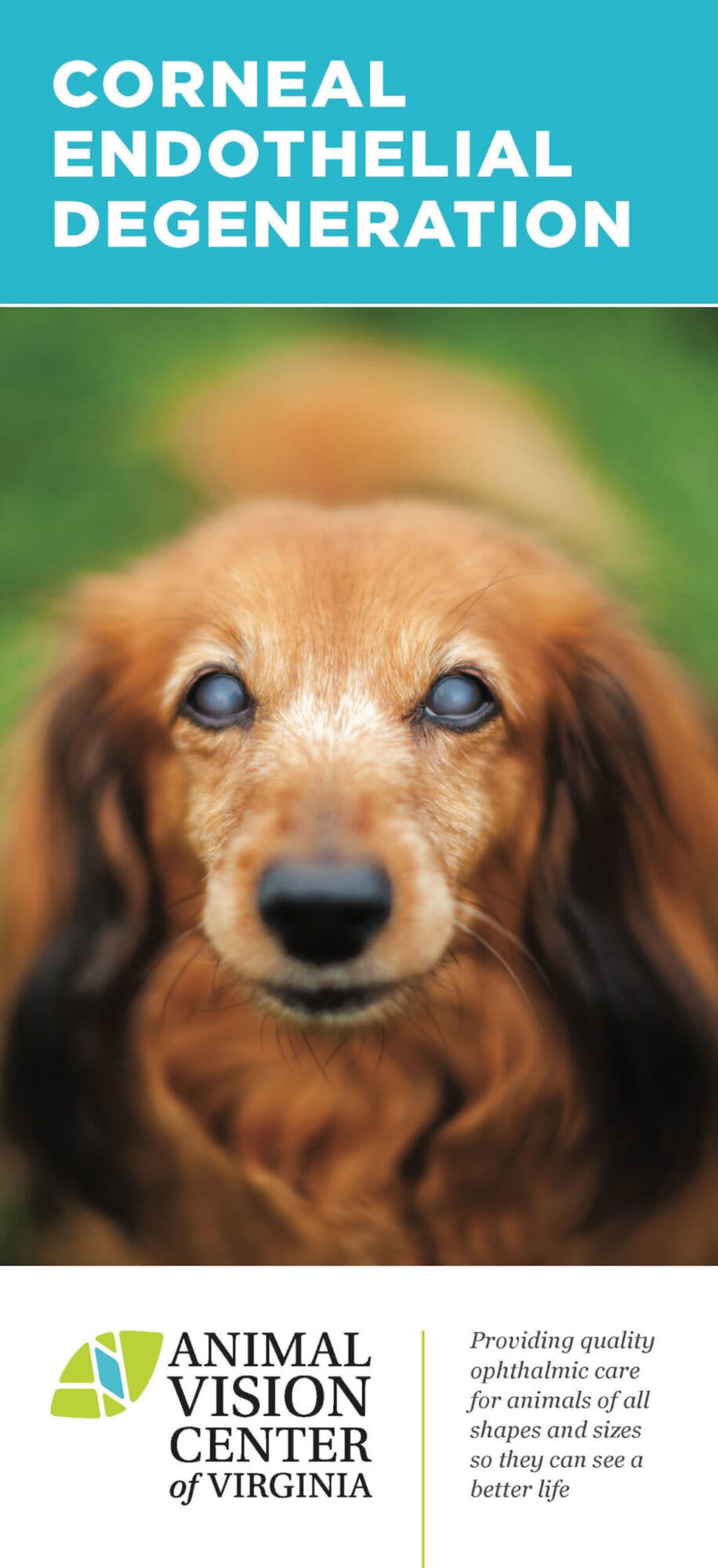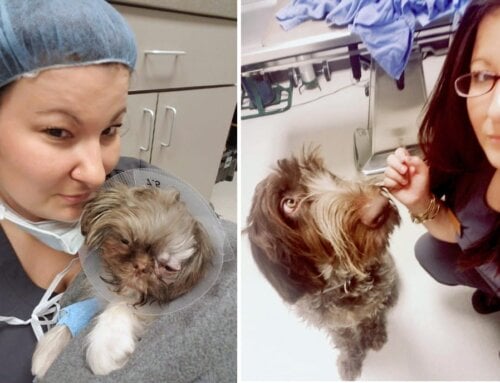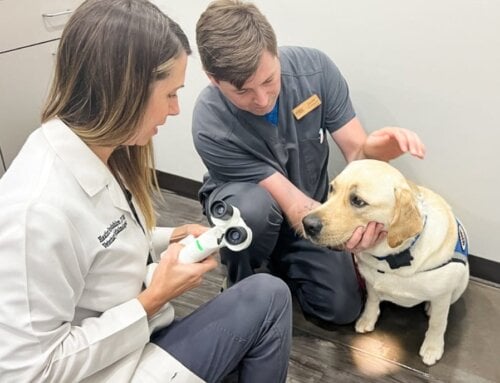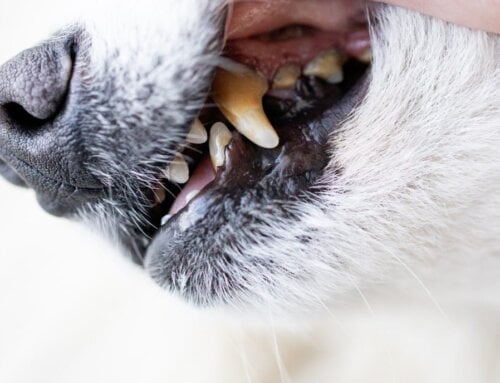Corneal endothelial degeneration (CED) is an age-related process by which the single layer of cells on the inside of the cornea (endothelial cells) prematurely decline in number and function. These cells contain tiny “pumps” that normally regulate the amount of fluid within the cornea throughout life and help to ensure the cornea remains transparent and free of fluid accumulation or “corneal edema.” When the cell number declines to a critical density, fluid begins to leak into the cornea causing it to become water-logged, swollen and opaque—thus limiting vision.
While any breed of dog can develop this condition in their later years of life, breeds that are particularly predisposed to CED include the Boston terrier, Dachshund, Chihuahua, Basset hound, German shorthaired and German wirehaired pointers. Among these breeds, it is seen more commonly in female than male dogs.
While it may sound alarming, CED can be treated using the following options:
- Palliative medical therapy, in the form of hypertonic saline ointment and non-steroidal anti-inflammatory drugs (NSAIDS), which help to minimize the accumulation of fluid
- Palliative surgical therapy, to more dramatically slow the progression and/or eliminate the secondary painful corneal erosions
- Corneal transplant procedures, the only way to “cure” CED (from a biological standpoint) by replacing the diseased inner layer of the cornea with a new healthy layer of cells
Our newest and best corneal transplant procedure is Descemet’s stripping endothelial keratoplasty (DSEK). This procedure has significantly improved outcomes in canine corneal transplantation. The goal of DSEK is to take a completely opaque CED compromised cornea and to selectively transplant only the diseased endothelium. Ultimately, this will result in fewer post-operative complications, lower rates of rejection, and increased visual outcomes.
Animal Vision Center of Virginia is one of only a small handful of practices in the world that is currently performing DSEK to restore sight in dogs, and we are proud to offer this therapy option.
If you have a pet, or a patient, in the early stages of CED, please call us at 757-749-4838 to discuss treatment options. We are also partnering with our referring veterinary practices in the corneal donation process. If you would like to help us save vision in affected animals please contact us, or see our “Be a Hero” brochure for more information.


















